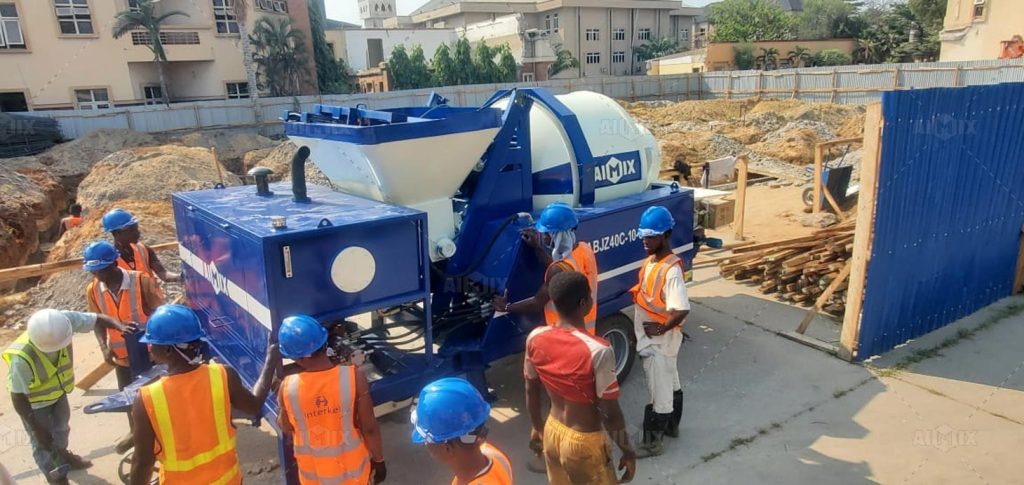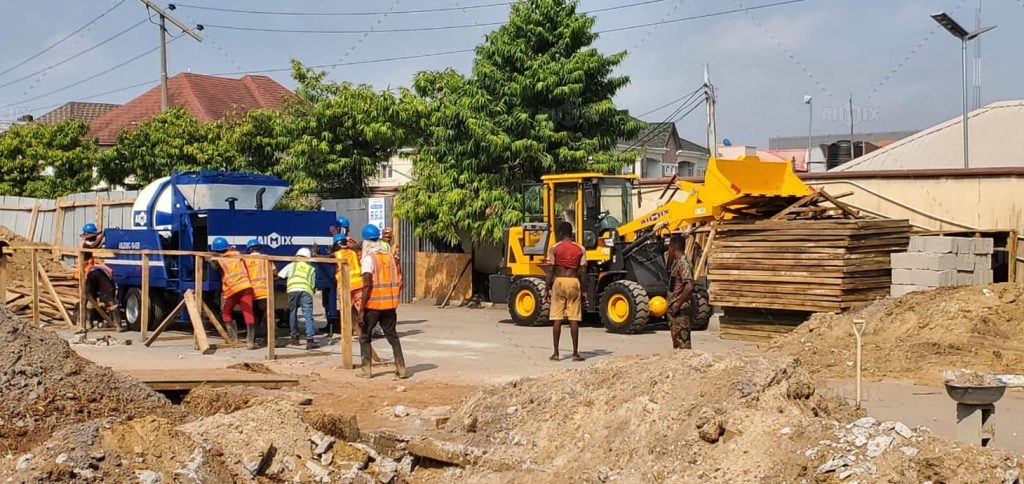Concrete pumps are vital equipment in construction projects, especially for high-rise buildings and large-scale infrastructure. To ensure safe and efficient operation, pipelines for high-pressure delivery play a crucial role. Understanding the requirements for these pipelines is essential for contractors and operators to maintain project timelines and minimize risks.
Concrete pump pipelines must meet specific standards and requirements to withstand the high-pressure delivery of concrete mixtures without compromising safety or performance. Let’s explore the key considerations for designing and selecting pipelines for high-pressure concrete delivery.
The Importance of Pipeline Durability
Concrete pump pipelines face extreme operating conditions, including high pressure, abrasive materials, and frequent movement. As such, durability is paramount to prevent concrete mini pump pipeline failures, leaks, or bursts that can disrupt construction activities and pose safety hazards.

Material Selection
When it comes to pipeline materials, durability is non-negotiable. Steel pipelines are the preferred choice for high-pressure concrete delivery due to their exceptional strength, resistance to corrosion, and longevity. High-grade steel alloys, such as ST52 or Hardox, offer superior durability and can withstand the rigors of concrete pumping operations.
Wall Thickness
The wall thickness of concrete pump pipelines directly affects their strength and ability to withstand high pressures. Thicker walls provide greater resistance to deformation and bursting, ensuring reliable performance under demanding conditions. Opting for pipelines with adequate wall thickness is essential to minimize the risk of premature failures and ensure long-term durability. Check some related info here: https://concretemixerwithpump.com/trailer-concrete-pump/.
Pressure Rating and Performance
Concrete pumps exert significant pressure to transport concrete mixtures from the hopper to the placement location, especially in high-rise construction or long-distance pumping applications. Pipelines must be designed and rated to withstand these pressures without compromising structural integrity or safety.

Pressure Rating
The pressure rating of concrete pump pipelines determines their maximum allowable operating pressure. Pipelines should be selected based on the pump’s output pressure and the specific requirements of the construction project. Higher pressure ratings ensure compatibility with high-pressure pumping systems and minimize the risk of pipeline failures or blowouts during operation.
Performance under Dynamic Loads
In addition to static pressure, concrete pump pipelines are subjected to dynamic loads, including vibrations, movement, and bending, during pumping operations. Pipelines must exhibit excellent fatigue resistance and flexibility to accommodate these dynamic loads without experiencing premature fatigue or failure. Choosing concrete mix pump pipelines with superior performance under dynamic loads is essential for ensuring reliable and uninterrupted concrete delivery.
Compatibility and Connectivity
Seamless compatibility and proper connectivity between concrete pump pipelines and associated components, such as hoses, couplings, and elbows, are critical for efficient and leak-free concrete delivery. Ensuring compatibility and proper installation minimizes the risk of leaks, blockages, or pressure losses that can compromise pumping efficiency and safety.
Compatibility with Pump and Accessories
Concrete pump pipelines should be compatible with the pump’s discharge outlet and other accessories, such as elbows, reducers, and couplings, to ensure seamless connectivity and optimal performance. Proper sizing and compatibility prevent leakage, reduce wear and tear, and optimize concrete flow during pumping operations.
Secure Connections
Proper installation and secure connections are essential to prevent leaks, blowouts, or disconnections during concrete pumping. Using high-quality clamps, bolts, and gaskets, and following manufacturer recommendations for assembly and tightening ensures secure connections and minimizes the risk of accidents or downtime due to pipeline failures.
In conclusion, concrete pump pipelines for high-pressure delivery play a critical role in construction projects, requiring careful consideration of material selection, pressure rating, performance, compatibility, and connectivity. By adhering to these requirements and selecting pipelines that meet the demands of high-pressure concrete pumping operations, contractors and operators can ensure safe, efficient, and reliable concrete delivery to construction sites.